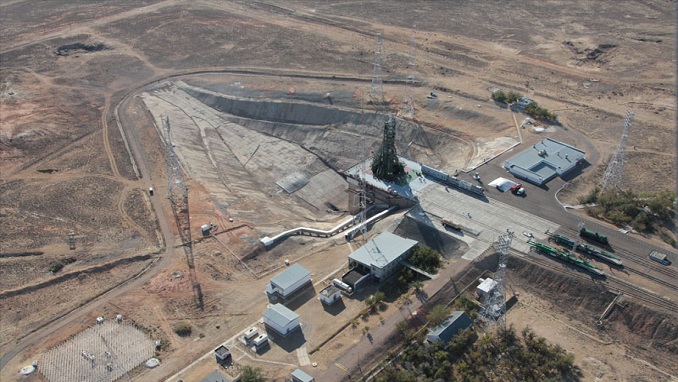Russia’s Energia Space Rocket Corporation signed a contract on creating the Baiterek launch compound for Soyuz-5 next-generation carrier rockets at the Baikonur spaceport in Kazakhstan, the Russian space agency Roscosmos reported on Thursday.
“The Energia Space Rocket Corporation and the Baiterek Joint Venture signed a contract in the town of Baikonur on July 30, 2020 on the provision of services for creating the Baiterek space rocket compound for the next-generation medium-class rocket for the launch of unmanned spacecraft,” Roscosmos said.
The Baiterek project envisages creating the rocket compound on the basis of the Zenit-M launch site at the Baikonur Cosmodrome for the launches of next-generation Soyuz-5 medium carrier rockets, Roscosmos specified.
Russia and Kazakhstan signed a protocol in 2018 on making amendments to the inter-governmental agreement of December 22, 2004 on creating the Baiterek compound at the Baikonur Cosmodrome. It defines the parties’ commitments under the project, the withdrawal of the Zenit-M ground-based space infrastructure facilities from the lease and their transfer to the Kazakh side for the upgrade.
The Kazakh side is responsible for creating the ground-based infrastructure of the Baiterek space rocket compound by upgrading the available Zenit-M launch site. Russia is responsible for developing Soyuz-5 and Soyuz-6 carrier rockets for their launch from the Baiterek compound at the Baikonur spaceport. The first launch is planned for 2023.
Russian President Vladimir Putin suggested naming the launch compound being built for next-generation Soyuz-5 and Soyuz-6 rockets in honor of Kazakhstan’s first President Nursultan Nazarbayev. The launch compound was named the Nazarbayev Start.
The Soyuz-5 (Irtysh) medium-class carrier rocket is being developed by Energia Space Rocket Corporation. The new rocket’s elements and technologies are planned to be used in the first stage of a super-heavy rocket, which Russia is developing for launches from the Vostochny spaceport in the Russian Far East.












